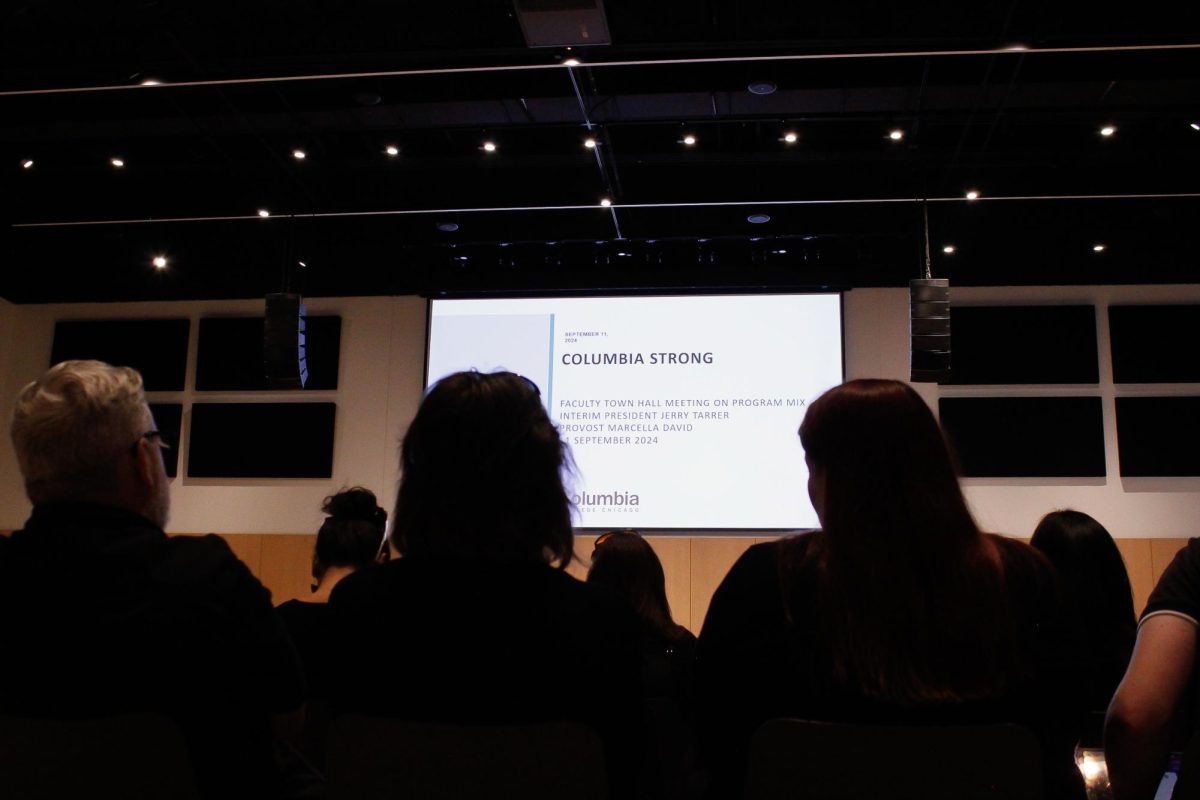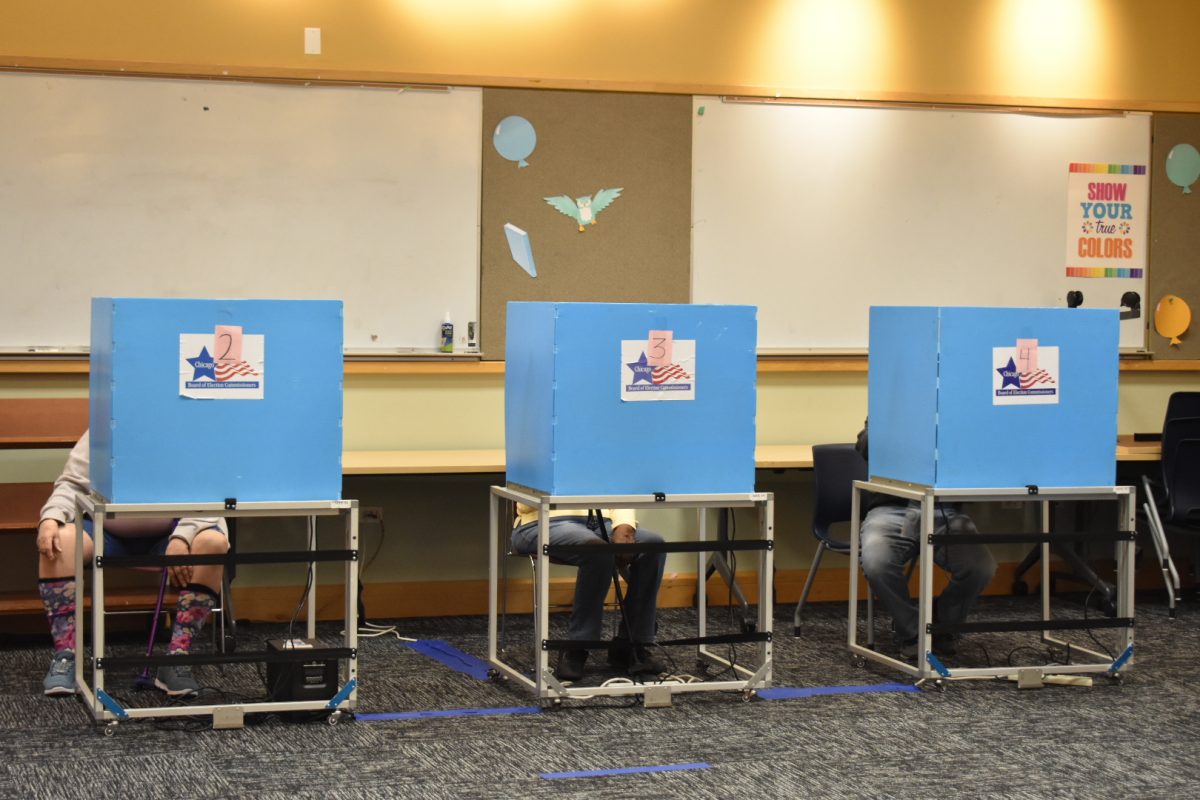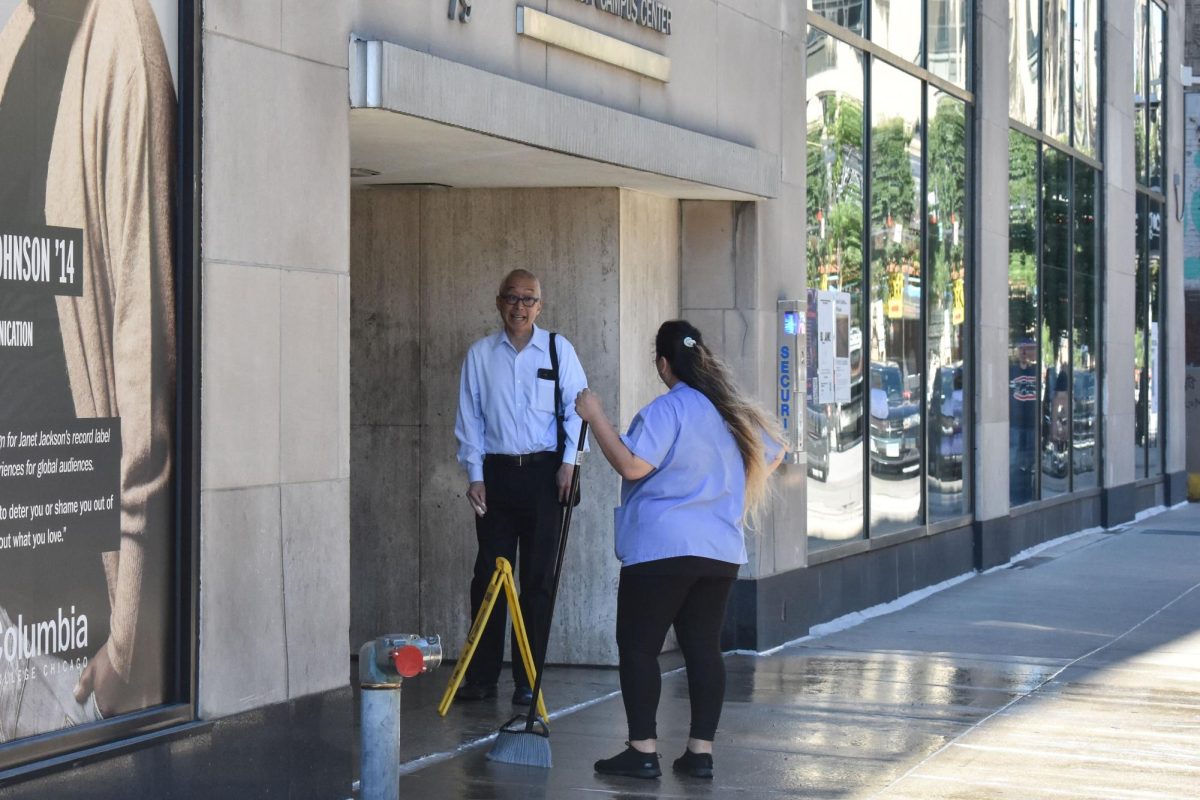Richard Poulton, former chief executive officer of Veradigm, remains on the college’s Board of Trustees amid a probe of overinflated revenue at his former company.
Poulton resigned from the Chicago-based healthcare technology firm on Dec. 6, according to SEC filings. The company, a healthcare technology and data analytics solutions provider, asked him to resign due to a “probe of inflated revenue.”
Poulton has been a member of Columbia’s board since May 2021 and is a former co-worker of Board Chairman John Holmes when the two worked at AAR Corp.
John Holmes, chair of the Board of Trustees, said he was aware of Poulton’s resignation from Veradigm when it occurred.
“I was happy that he wanted to remain a Columbia trustee after he left Veradigm,” Holmes told the Chronicle via email on Wednesday, Feb. 14.
Members serve on the board voluntarily.
Poulton was present at a board meeting on Feb. 8 when members unanimously voted to direct President and CEO Kwang-Wu Kim to assess whether the financial crisis was severe enough to warrant closing academic programs and laying off tenured or tenure-track full-time faculty.
Kim announced that decision the next day during a Faculty Senate meeting.
He told senators that he will prepare a draft report and deliver it to them by Feb. 28 in a process outlined in the college’s “Statement of Policy.” The senate then has six weeks to review and provide feedback. Kim will deliver a final report back to the board on May 2.
“As you can imagine most of our board are highly successful businessmen and so they don’t have a lot of tolerance for a lot of discussion. They want to see results,” Kim told the senate, describing the conversation around how soon he could finish the report.
On Wednesday, Kim announced he would step down as president this summer.
The board had already told the college it needed to close a financial gap by 2026. To do that, the college announced last spring that it would need to raise tuition, improve retention, grow enrollment and students and achieve operational efficiency through bigger classes and fewer sections.
At the time, the college estimated its deficit to be more than $20 million. It had dropped to about $18.5 to $19 million by the start of the Fall 2023 semester, Kim said. It is now $36 million, nearly double, which the college attributed to the part-time faculty union’s seven-week strike last fall. The strike cost the college $13 million in one-time costs.
Kim announced a hiring freeze on Feb. 6.
As a board member, Poulton has been a part of the discussions around the college’s finances even as he dealt with issues at his own company.
According to the SEC filing, the board of directors at Veradigm asked Poulton and the company’s chief financial officer to resign Dec. 6 over issues related to “financial reporting and internal controls over financial reporting and disclosure controls.”
Crain’s Chicago Business first reported the resignations on Dec. 8.
In a hearing on Dec. 8, Nasdaq allowed the company to remain listed, according to another SEC filing. With Poulton at the helm, Veradigm received notification that its shares would be delisted because it had not filed financial reports on time as required.
The Chronicle attempted to reach Poulton by email two times, but he did not respond. His LinkedIn still lists him as CEO of Veradigm, as well as a chief executive of R2P Advisors.
Veradigm provides healthcare workers and providers with technology to manage records.
Concetta Rasiarmos, a spokesperson for Veradigm, said Poulton resigned at the request of the board.
“This was disclosed in our press release and public filings,” Rasiarmos said. “As a matter of company policy, Veradigm has no further comment.”
Holmes is the president and CEO of AAR Corp., a private provider of aviation services. Poulton and Holmes both worked for AAR Corp from 2006 through 2012 when Poulton was the company’s chief financial officer. Holmes was general manager at the time.
Madhurima Chakraborty, president of Faculty Senate and associate professor in the English and Creative Writing Department, declined to comment.
Joan Giroux, president of Columbia’s AAUP chapter and art history professor, also declined to comment.
The Board of Trustees oversee the college’s budget, fundraising efforts and the institution’s public image. The board also approves tuition increases.
The board has one faculty liaison, which is Sean Andrews, associate chair of the Humanities, History and Social Sciences Department, and one student representative, which is Lindy Girman, senator for Student Government Association and a junior theatre major.
They were not part of the vote to request a report on the severity of the college’s finances and what programs could possibly be cut because the board had gone into executive session without them.
Andrews said he was “completely blindsided” by the announcement released the next day about the President’s report and his resignation earlier this week.
“It is unfortunate that there wasn’t some opportunity for the board to consult the faculty and student representatives about this dramatic announcement that so severely impacts the faculty and students of the college,” Andrews said to the Chronicle on Friday, Feb. 16.





















